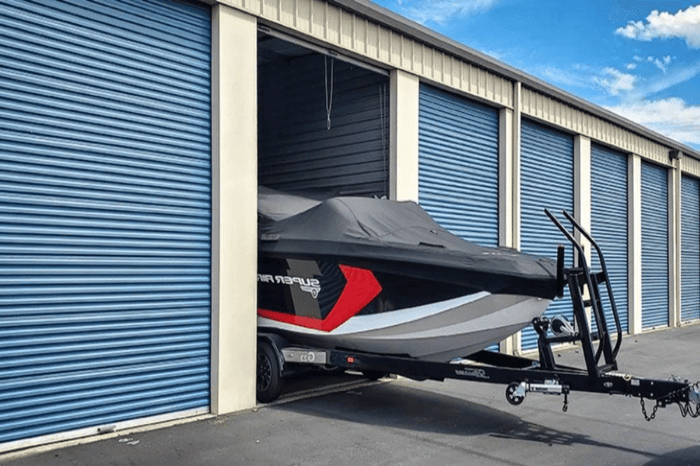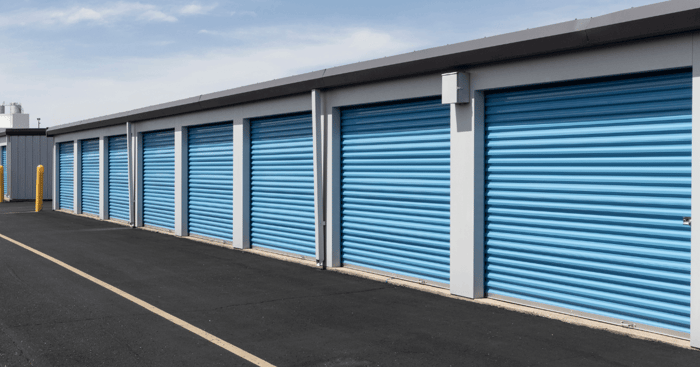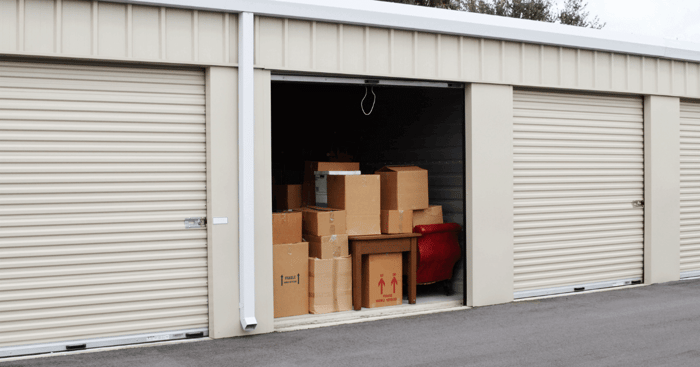
If you own a boat, you know it’s more than just a recreational vehicle; it’s an investment. Whether it’s a fishing boat, pontoon, sailboat, or personal watercraft, proper storage plays a significant role in extending your boat’s lifespan and ensuring it's ready when the water calls. But when the off-season hits or you're heading into a long hiatus, what’s the best way to store your boat?
In this guide, we'll break down the most effective long-term boat storage options, their pros and cons, and how The Storage Advantage offers reliable, secure, and convenient self-storage solutions tailored to boat owners.
Why Proper Boat Storage Matters
Before we dive into storage types, let’s understand why this matters. Poor storage can lead to:
Corrosion or mold from excess moisture
Sun damage to the hull, upholstery, and dashboard
Mechanical issues from temperature fluctuations
Pest infestation or structural wear
Using a purpose-built storage facility prevents most of these issues, saving you from costly repairs down the line.
Types of Boat Storage: Pros, Cons, and Best Use Cases
Here's a detailed comparison of the most popular long-term storage options for boats:
Storage Type | Protection Level | Accessibility | Ideal For | Climate Control | Security |
Outdoor Boat Storage | Basic (no cover) | High | Larger boats or trailers | ❌ | ✅ |
Covered Outdoor Storage | Moderate | High | Mid-size boats | ❌ | ✅ |
Enclosed Boat Storage (Garage-Style) | High | Medium | Small to mid-size boats | ❌ or ✅ | ✅✅ |
Climate Controlled Storage Units | Very High | Medium | Small boats or expensive vessels | ✅ | ✅✅ |
Dry Stack Storage (Marina) | Very High | Low (requires scheduling) | Small boats | ✅ | ✅✅ |
Boat Slip / Marina In-Water | Low | High | Boats used year-round | ❌ | Varies |
1. Outdoor Boat Storage (Uncovered)
This is the most budget-friendly option. Typically found in storage facilities that cater to RV and boat parking, your boat is parked in a designated space.
Pros
Affordable, fast access, suitable for large trailers
Cons
Exposed to sun, rain, snow, and pests
Best For
Owners who use a weatherproof boat cover and want affordable storage
Pro Tip
Use a marine-grade cover and elevate the trailer to allow drainage.
2. Covered Outdoor Storage
Think of this as carport-style storage for your boat. You still park outdoors, but with overhead protection from the sun and precipitation.
Pros
Affordable with some protection from the elements
Cons
Doesn’t prevent moisture buildup or pests
Best For
Seasonal boaters looking for budget-friendly, semi-protected storage
3. Enclosed Boat Storage (Drive-Up Units)
Also called garage-style storage, these drive-up storage units give your boat four-wall protection. Perfect for smaller boats or personal watercraft (PWCs).
Pros
Excellent protection from the weather and theft
Cons
May not fit larger boats; availability can be limited
Best For
Small boats, jet skis, or trailers needing complete protection
Bonus: These secure storage units often include keycode access and security cameras for added peace of mind.
4. Climate-Controlled Storage Units
These are typically indoor, temperature- and humidity-regulated storage spaces. They're best suited for luxury boats or sensitive equipment.
Pros
Best protection from temperature swings, humidity, and mold
Cons
More expensive and size-limited
Best For
High-end vessels, electronics, or long-term indoor storage
According to the American Boat and Yacht Council, controlling humidity is crucial for preventing electrical damage and mold buildup during long-term storage.
5. Dry Stack Storage (at Marinas)
Dry stack storage keeps your boat stacked with others in a warehouse-style marina facility. While secure and climate-controlled, this type typically requires scheduling to retrieve your boat.
Pros
Excellent protection and professional handling
Cons
Inconvenient access, limited to smaller boats
Best For
Infrequent boaters or winter storage near water
6. In-Water Marina Slips (Not Recommended for Long-Term Storage)
While convenient for frequent use, storing your boat in water long-term increases the risk of hull damage, algae buildup, and theft. Not recommended unless you're boating year-round and performing regular maintenance.
Key Features to Look for in Long-Term Boat Storage
When comparing storage facilities, focus on these essentials:
Security
Choose secure storage facilities with fencing, controlled gate access, surveillance cameras, and well-lit areas.
Accessibility
Consider how often you need access to your boat. If you’re storing for a full season or longer, accessibility may matter less than protection.
Climate Control (Optional but Ideal)
In regions with extreme temperature swings or high humidity, climate-controlled storage protects sensitive boat materials and electronics.
Space Size
Ensure the storage unit or parking space fits the entire boat and trailer, leaving room to maneuver safely.
Insurance & Registration
Even in storage, some facilities require up-to-date insurance and registration for liability purposes. Check ahead to avoid surprises.
Seasonal Considerations for Boat Storage
Storing your boat for the winter? Or prepping for hurricane season? Here are a few key seasonal tips:
Winterization Tips
Drain fuel and water tanks
Add antifreeze
Remove electronics and valuables
Use a breathable cover
Lubricate moving parts
Rainy Season Tips
Park with a slight incline to allow water runoff
Use a moisture absorber in enclosed units
Inspect the cover regularly for leaks
Summer Storage
Choose a shaded or covered space if available
Consider using UV-resistant wax on the hull
Check tire pressure and battery if storing on a trailer
Enclosed vs. Outdoor Boat Storage: What’s the Best Long-Term Choice?
Here’s a side-by-side breakdown:
Feature | Enclosed Storage | Outdoor Storage |
Protection from Elements | ✅✅✅ | ❌ |
Security | ✅✅✅ | ✅ |
Price | $$$ | $ |
Accessibility | Moderate | High |
Climate Control | Optional | ❌ |
Best For | Long-term storage, high-value boats | Short-term or budget-conscious storage |
Can You Store a Boat in a Standard Storage Unit?
Yes, but only if the unit is long and wide enough. A typical 10x30 or 12x35 drive-up storage unit may be suitable for a smaller boat or trailer. For anything larger, outdoor boat storage or a dedicated parking space is the better option.
Boat Storage and Life Transitions: Why It Matters
Many people seek self-storage solutions during life changes, downsizing, relocating, or even going on extended travel. A secure place to store your boat lets you focus on the transition without worrying about theft, sun damage, or weather exposure.
Other examples of when long-term boat storage makes sense:
Moving out of state
Deployments or travel sabbaticals
Seasonal boating areas
Selling your boat (keeping it showroom-ready)
The Storage Advantage: Long-Term Boat Storage You Can Trust
At The Storage Advantage, we understand that your boat is more than just a possession; it’s a passion. That’s why we offer:
Multiple storage sizes to fit boats of all kinds
Drive-up access for easy trailer loading/unloading
Climate-controlled units for delicate equipment
Secure storage spaces with surveillance and gated access
Specialty RV and boat storage options across all our facilities
Whether you need indoor, outdoor, or covered storage, our flexible storage solutions make it easy to protect your boat, season after season.
Find Your Perfect Boat Storage Solution Today
Store Smarter, Boat Longer
Choosing the proper boat storage for the long haul doesn’t have to be complicated. Whether you’re looking for covered parking, climate-controlled storage units, or secure drive-up storage, The Storage Advantage has a solution that works for you.
Take the stress out of boat storage. Visit https://thestorageadvantage.com/ and find your ideal storage facility today.
Find nearby storage units here: https://thestorageadvantage.com/storage-units-near-me.






